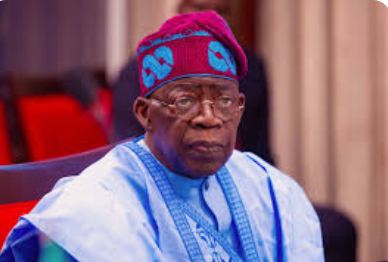
President Bola Tinubu is renowned for his ability to empower individuals. Those in his inner circle attest to his generosity and unwavering support for those in need. With a long-standing ambition to hold his current position, Tinubu has dedicated over three decades to building connections across the nation to achieve his goal.
Building such extensive networks and making necessary preparations come at a cost, both in terms of finances and time. The rallying cry of “emi lokan” (it is my turn) reflects not merely a wish but years of tireless effort on Tinubu’s part. It is crucial to understand that his intentions involve paving the way for progress and prosperity akin to the era of Awolowo or MKO. Tinubu’s vision aims at steering the nation towards economic prosperity and abundance, reminiscent of Nigeria’s heydays under leaders like Obasanjo.
In striving for a brighter future, it is essential to remember our roots. As a Yoruba proverb goes, understanding our past is key to shaping our future direction. Just as in medical practice where persistent symptoms warrant consultation, the prolonged economic challenges in our country call for a collective effort to navigate out of this quagmire. It is vital that stakeholders collaborate to steer Nigeria towards a more promising tomorrow.
One critical aspect that Tinubu may consider is the policy on currency fluctuation. History has shown that currency devaluation can pose risks, particularly for import-reliant nations. Countries like Russia and Germany have faced repercussions from freely floating their currencies before stabilizing them. By leading the charge in currency value among African nations, Nigeria can bolster its economic standing internationally.
Similarly, addressing subsidy removal warrants careful consideration. Subsidies play a pivotal role in many countries, ensuring fair pricing for essential goods. Redirecting federal tax rates to offset the impact of subsidy removal on citizens, particularly the less privileged, can help alleviate the burden of rising prices. Implementing robust monitoring systems to curb fraudulent subsidy claims can mitigate potential abuses.
Furthermore, initiatives like the Subsidy Trust Fund could support strategic interventions in areas such as renewable energy projects and agricultural development. Addressing inflation concerns by reevaluating interest rates is crucial to foster a level playing field for local businesses amid global competition.
Enhancing national security, particularly in rural areas, is imperative for fostering agricultural productivity. By bolstering security measures and cracking down on instigators of violence, the government can instill confidence among farmers. Reviving farm settlements and promoting education across regions are steps towards ensuring sustainable development and curbing social unrest.
Moreover, reforming institutions like the National Orientation Agency can bridge knowledge gaps and promote civic values. Encouraging economic empowerment and patriotism at grassroots levels can address societal challenges effectively.
Tinubu’s strategic approach should involve evaluating existing policies and making necessary adjustments to prioritize citizens’ welfare. By fostering a culture of performance and seeking expertise from diverse quarters, transformative changes can be realized for the betterment of the nation.
It is never too late to reassess the interplay between interest rates, currency stability, and subsidy policies to align with the people’s best interests. Tinubu’s success hinges on embracing constructive feedback and steering the nation towards a prosperous future.
Dr Adeoye is a lawyer and chartered accountant
